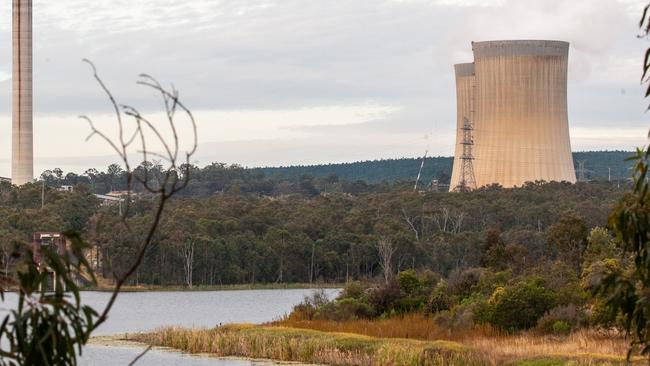Thirsty nuclear threat to farms, warns Murray Watt
Concerns that many of the Coalition’s proposed nuclear reactors would be near farming districts reliant on already scarce water supplies need to be addressed, the Global Food Forum will hear.

Switching to nuclear power generation could put Australian agriculture at risk by taking away valuable water resources used to grow crops and livestock, the Albanese government warns.
Amid ongoing debate about the direction the country’s future energy mix should take as it transitions away from fossil fuels, federal Agriculture Minister Murray Watt on Wednesday will advise leading food producers at The Australian’s Global Food Forum that the nuclear plan touted by the opposition could jeopardise the ability to grow food and fibre.
Describing nuclear power generation as a “thirsty endeavour”, Senator Watt says there has been no information provided by the Liberals and Nationals about where the vast amounts of water required to cool radioactive cores would come from.
The speech in Brisbane will highlight the importance of water security to the agriculture sector and outline the government’s concerns that many of the Coalition’s proposed nuclear reactors will be located within farming districts that are reliant on already scarce water supplies.
Senator Watt will accuse the Coalition of basing its policy on ideology instead of pragmatic judgments or good economics.
“Beyond the existing issues around cost and delay, I see nuclear power as raising some very specific issues for the ag sector,” he will say. “As the driest inhabited continent on Earth, the availability of water is fundamental to a successful Australian agriculture sector.
“We need water for the food we produce, water to drink, and sustainable levels of water for our precious environment.
“One issue not yet considered in the nuclear debate is the fact that nuclear energy production is a thirsty endeavour. The generation of nuclear energy requires a significant amount of water to cool the radioactive cores – a lot more water than is required for renewable energy.”

Experts say nuclear power stations require comparable amounts of water to coal-fired power stations, depending on the method used.
Peter Dutton last month announced a future Coalition government would build seven nuclear reactors on the sites of ageing coal-fired power stations in Queensland, NSW, Victoria, Western Australia and South Australia. Two – either small modular reactors or larger plants – would be built by 2035.
Few details were revealed about arrangements with existing owners or where the required water would come from.
The existing coal-fired power stations on the sites have water reservoirs for cooling, but some are also used for agricultural purposes and have faced shortages in the past because of drought.
“The fact is that, for an already risky policy, Peter Dutton hasn’t outlined where any additional water is going to come from for his nuclear reactors,” Senator Watt will say.
“Many of his proposed reactors are located in prime agricultural regions, including just north of here at Tarong in the South Burnett, which is next door to the Great Artesian Basin.
“It is still unclear just how much water the ag sector may have to give up for those nuclear reactors to operate. Or how much more farmers would have to pay for their water, against this competing use. These are just more questions about nuclear that remain unanswered.”
Both major parties have based part of their platforms for preferred future energy generation on how it affects Australia’s agriculture sector, which is expected to hit $84bn in 2024–25.
A major rationale for the Coalition’s push towards nuclear power is the opposition by some rural communities to large tracts of food-producing land being taken up by solar panels, wind turbines and transmission lines.
Senator Watt will also use his speech to criticise the Coalition’s policy to give divestiture powers to the competition watchdog to crack down on supermarkets abusing their market share.




To join the conversation, please log in. Don't have an account? Register
Join the conversation, you are commenting as Logout